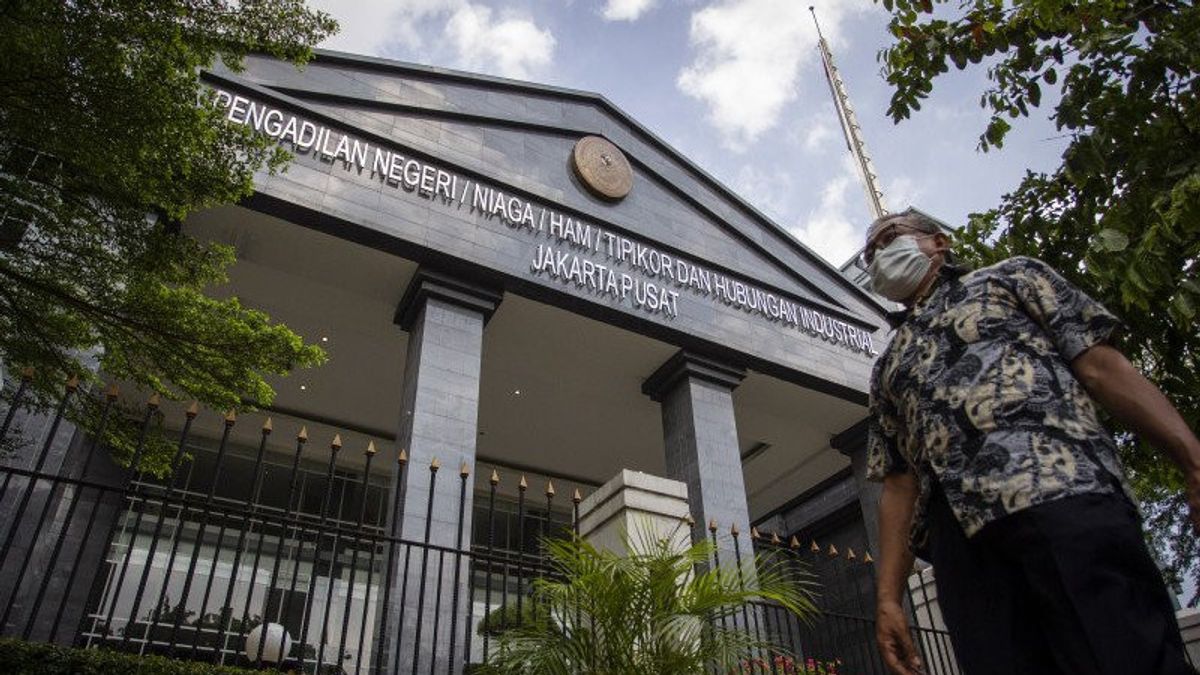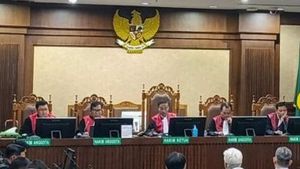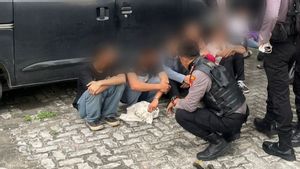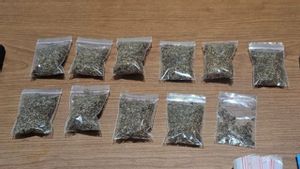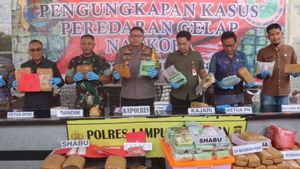JAKARTA - The Coordinator of the Indonesian Democracy Defender Team (TPDI) Petrus Selestinus assessed that the Public Prosecutor (JPU) from the Attorney General's Office had arbitrarily indicted the defendant in the alleged corruption case of Asabri Heru Hidayat with the death penalty.
According to Petrus, the public prosecutor charged Heru Hidayat with articles of indictment that were not contained in the indictment. He also predicts the judge will reject the prosecutor's demands.
"The prosecutor must not be careless and arbitrary in prosecuting the accused, including in the Asabri case. Why, because the prosecutor's demands cannot be separated from the articles of indictment that have been included in the indictment. Likewise, the panel of judges can only make decisions according to the indictment," said Petrus in a written statement, Thursday, December 23.
Petrus reminded the importance of the indictment in any case, including corruption cases. The indictment will be the corridor and the basis for the trial processes.
In addition, the indictment also becomes the basis for judges in deciding cases. Therefore, said Petrus, now the Public Prosecutor does not need to argue with the death penalty charge for Heru Hidayat because from the beginning the prosecutor did not include Article 2 paragraph (2) of the Corruption Eradication Law, which stipulates the death penalty, in the indictment.
“Especially if the prosecutor justifies his claim by using the argument of a court decision that has been annulled. Even if there are one or two court decisions that decide cases outside of the indictment, they cannot necessarily justify what the prosecutors have demanded in the Asabri case because the rules are clear, they must be in accordance with the indictment," said Petrus.
According to Petrus, the panel of judges will reject the prosecution's claim against Heru Hidayat in the Asabri case because the judge will decide the case in accordance with the legal corridor which is clearly regulated in Article 182 paragraph (4) of the Criminal Procedure Code.
This article states that the deliberation (assessment of judges) in paragraph (3) must be based on an indictment and everything that is proven in the examination at the trial.
“In the provisions of Article 182 paragraph (4) of this Criminal Procedure Code, it is regulated '… the indictment and everything that is proven in the examination at trial', so the connecting word used is and not or. So, the prosecutor's demands or the judge's decision may not come out of the indictment and the facts of the trial. If you use the word or, then the judge can choose one of them, but this is using the word and,” explained this Peradi Senior Advocate.
“This has given the public prosecutor the widest opportunity to include various articles, such as cumulative, alternative, combined, and other charges when making indictments. Now, the question is, why was it not carried out from the beginning by the Public Prosecutor, including the article on the death penalty in the Asabri case, "said Petrus.
The death penalty, continued Petrus, can be applied to corruption cases in certain circumstances, namely national disasters including monetary crises as stipulated in Article 2 paragraph 2 of the Anti-Corruption Law. It's just that, he said, its application must be in accordance with applicable regulations, which must be included in the indictment.
“In the past, there was also a corruption case with the prosecution demanding the death penalty, namely against Dicky Iskandardinata, the accused of breaking into the BNI bank through a fictitious transaction worth Rp. 1.7 trillion. However, the prosecutor's demands were rejected by the panel of judges because the article on the death penalty was not included in the indictment. At the cassation level, this case was decided by a panel of judges whose chairman was the late. Artidjo Alkostar. Now, this is almost the same as the death penalty charge against Heru Hidayat, whose articles of indictment related to the death penalty are not included in the indictment," said Petrus.
It is known, in the corruption case that ensnared Dicky Iskandardinata, the Public Prosecutor demanded the death penalty against Dicky for breaking into the BNI bank through a fictitious transaction worth Rp. 1.7 trillion.
The prosecutor charged Dicky with Article 2 paragraph (2) of the Anti-Corruption Law, but that article was not included in the indictment. As a result, the prosecutor's demands were rejected by the panel of judges at the District Court level until an cassation on the grounds that the verdict must be in accordance with the indictment.
Dicky was also sentenced to 20 years in prison and an additional fine of IDR 500 million, subsidiary to 5 months in prison.
The English, Chinese, Japanese, Arabic, and French versions are automatically generated by the AI. So there may still be inaccuracies in translating, please always see Indonesian as our main language. (system supported by DigitalSiber.id)
